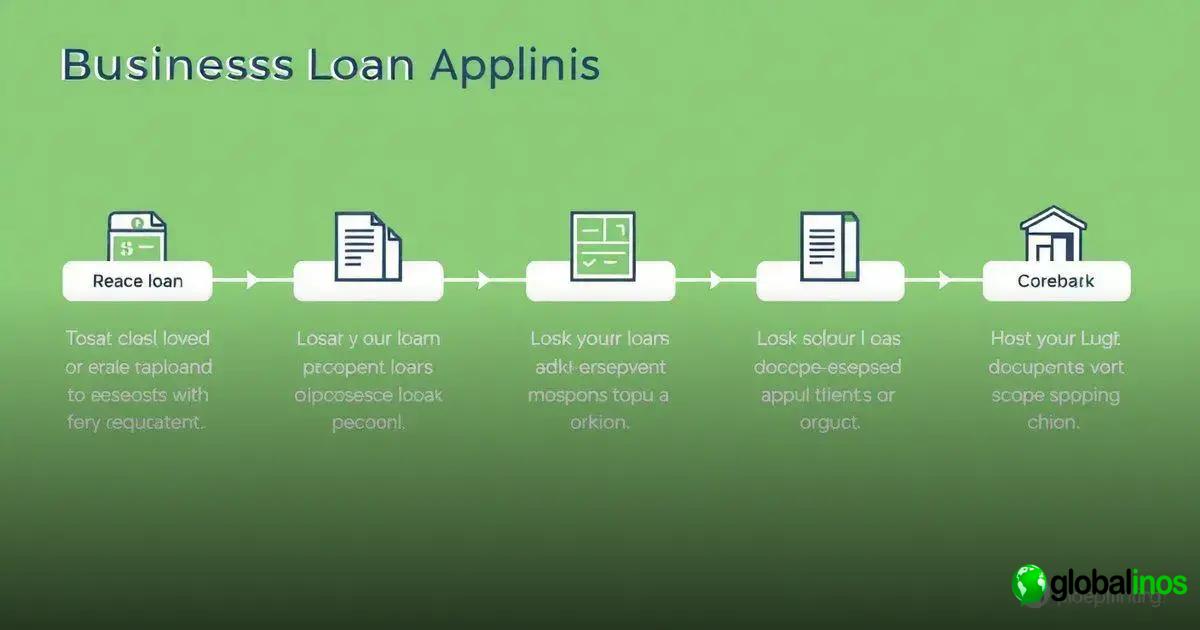Business loans are a cornerstone of entrepreneurial success, offering a financial boost to kickstart or grow a business. Whether you’re launching a new venture or expanding an existing one, having access to the right funding can make all the difference in achieving your goals.
From covering daily operations to investing in innovation, these loans provide flexibility and opportunity. They’re designed to empower businesses of all sizes, ensuring they have the resources to thrive in competitive markets.
Curious about how business loans can elevate your business journey? Keep reading to discover everything you need to know to make the most of these powerful financial tools!
What Are Business Loans?
Business loans are a vital source of funding for entrepreneurs and owners of small to large businesses. These loans are borrowed capital used by businesses to finance their operations, expansions, or other investments. In simple terms, a business loan provides the necessary cash injection required to get your business off the ground or to help it grow.
Characteristics of Business Loans
Generally, business loans vary in terms of amount, interest rates, and repayment terms. Most loans require monthly repayments along with interest, which can vary based on the lender and risk profile of the borrower.
Why Businesses Need Loans
Companies seek out business loans for a variety of reasons. Some may need working capital to cover daily operational costs, while others may want to expand their product line or invest in new technology. Certain businesses might even look for loans to manage unexpected expenses or cash flow gaps.
Types of Business Loans
There are various types of business loans available. These include traditional bank loans, lines of credit, invoice financing, and SBA loans. Each has its own benefits and requirements, allowing businesses to choose an option that best suits their financial needs.
Understanding what business loans are and how they function can significantly empower entrepreneurs. By leveraging business loans wisely, you can effectively navigate the financial landscape, ensuring your business not only survives but thrives.
Types of Business Loans Available

Types of Business Loans Available vary widely, catering to different financial needs for businesses of all sizes. Understanding these types helps business owners choose the right loan for their specific situations.
1. Traditional Bank Loans
Traditional bank loans are long-term loans typically offered by banks or credit unions. They often come with lower interest rates and require collateral. Businesses usually pursue these loans for larger projects or investments.
2. SBA Loans
The Small Business Administration (SBA) offers loans that are partially guaranteed by the government. This reduces risk for lenders, allowing them to offer favorable terms. SBA loans are ideal for small businesses looking for lower rates.
3. Lines of Credit
A business line of credit provides flexible access to funds up to a certain limit. This type of loan allows businesses to withdraw money as needed and only pay interest on the amount used. It works well for managing cash flow fluctuations.
4. Invoice Financing
Invoice financing allows businesses to borrow against outstanding invoices. This is especially useful for companies waiting for customer payments. It provides immediate cash flow without the need for lengthy approval processes.
5. Equipment Financing
If a business needs to purchase equipment, equipment financing can help cover the cost. The equipment itself acts as collateral, making it easier for businesses to acquire financing while maintaining cash flow.
6. Short-Term Loans
Short-term loans offer quick access to funds with a repayment period of one year or less. These loans are typically used for urgent needs but may come with higher interest rates. They are suitable for businesses that need a quick financial boost.
7. Merchant Cash Advances
A merchant cash advance provides quick cash based on future credit card sales. This type of funding is generally easy to obtain but can be costly due to high fees, making it less suitable for long-term financing.
Recognizing the various types of business loans available allows entrepreneurs to make informed decisions and choose the financing option that best meets their operational needs.
How to Qualify for a Business Loan
How to Qualify for a Business Loan involves several key steps that aspiring borrowers should understand. Lenders typically evaluate several criteria to determine your eligibility.
1. Check Your Credit Score
Your personal and business credit scores play a significant role in qualifying for a business loan. A higher score indicates responsible financial behavior, which reassures lenders. Aim for a credit score of at least 650 for better approval chances.
2. Prepare Financial Statements
Most lenders will require you to provide financial statements, including profit and loss statements and balance sheets. This gives them insight into your business’s income and expenses, allowing them to assess your financial health accurately.
3. Show Revenue Stability
Demonstrating consistent revenue over time is crucial. Lenders want to see that your business can generate enough income to repay the loan. Providing tax returns or bank statements can help show this stability.
4. Create a Solid Business Plan
A well-prepared business plan outlines your business model, market analysis, and financial projections. It shows lenders you’ve seriously considered your business’s direction and have a strategy for growth.
5. Provide Collateral
Offering collateral can increase your chances of qualifying for a loan, especially for larger amounts. Collateral can include business assets like equipment or real estate, which reduce the lender’s risk.
6. Demonstrate Industry Experience
Having a background in your industry can positively impact your loan application. Lenders feel more secure lending money to someone with experience and knowledge of the market.
7. Prepare Essential Documentation
Gathering the necessary documents before applying can streamline the process. Typically, lenders require identification, business licenses, financial statements, and tax returns.
By following these steps and ensuring your application is well-prepared, you can significantly enhance your chances of qualifying for a business loan.
The Application Process for Business Loans

The Application Process for Business Loans is a crucial step for any entrepreneur seeking funds. Understanding this process can simplify your experience and enhance your chances of approval.
1. Research Loan Options
Start by researching various loan types. Each type has different terms, rates, and eligibility criteria. Understanding what fits your needs will lead you to the right lender.
2. Gather Required Documentation
Before applying, gather all necessary documentation. This typically includes financial statements, a business plan, tax returns, and personal identification. Being prepared can speed up approval.
3. Complete the Application
Fill out the loan application accurately. Many lenders offer online applications, making it easier to submit. Provide comprehensive information about your business and the purpose of the loan.
4. Submit Your Application
After filling out your application, review it carefully. Then, submit it according to the lender’s instructions. Some lenders may allow you to track your application status online.
5. Wait for the Lender’s Decision
Upon submission, your application will be reviewed. The lender will evaluate your creditworthiness and business potential. This process may take several days or weeks, depending on the institution.
6. Review Loan Offer
If approved, you will receive a loan offer outlining the amount, interest rate, and terms. Take your time to review all details and ensure it meets your needs before accepting.
7. Close the Loan
Once you accept the offer, you’ll go through the loan closing process. This may involve signing documents and providing any final information. After this, you will receive your funds, usually in a lump sum.
Understanding the application process for business loans can make a significant difference in achieving your funding goals. By preparing and following these steps, you can navigate this critical journey with confidence.
Common Mistakes to Avoid
Common Mistakes to Avoid when applying for business loans can help you secure funding more effectively. Being aware of these pitfalls ensures you present your best case to lenders.
1. Not Understanding Your Credit Score
Avoid applying for a loan without checking your credit score. Understanding your credit status helps you know where you stand and what loan options might suit you. Low credit can lead to rejections or higher interest rates.
2. Failing to Prepare Financial Documents
Many entrepreneurs overlook gathering essential financial documents before applying. Be sure to compile income statements, balance sheets, and cash flow statements. These documents are crucial for lenders to assess your financial health.
3. Neglecting a Solid Business Plan
Skipping a detailed business plan can harm your chances. A solid plan outlines your goals, strategies, and how you plan to use the loan. It helps lenders see your vision and potential for success.
4. Rushing the Application Process
Taking the time to fill out the application carefully is essential. Rushing can lead to mistakes or incomplete information. Make sure everything is accurate and complete before submission.
5. Ignoring All Loan Types
Not exploring all available loan options is a common mistake. Different loan types cater to various needs. Research each to find the best fit for your business situation and goals.
6. Overlooking Terms and Fees
Always read the fine print related to loan terms and fees. Ignoring these details can result in unexpected costs or strict repayment conditions. Make sure to understand the total cost of borrowing.
7. Underestimating Loan Amounts
Some borrowers request less money than needed, fearing rejection for larger amounts. It’s essential to ask for what you truly need to ensure your business can operate effectively without cash flow issues.
8. Failing to Communicate with the Lender
Good communication with your lender can clear up any confusion regarding the application process. Don’t hesitate to ask questions if you’re unclear about any aspect of your loan application.
By avoiding these common mistakes, you can improve your chances of successfully obtaining a business loan and meeting your financial goals.
Tips for Securing Your Business Loan
Tips for Securing Your Business Loan can greatly enhance your chances of approval. By following these practical suggestions, you can position your business as an attractive candidate for lenders.
1. Improve Your Credit Score
Start by checking your credit report and addressing any issues. Paying off debts and making payments on time can help boost your credit score, making you a more appealing borrower.
2. Create a Detailed Business Plan
Having a well-thought-out business plan is essential. This plan should detail your business model, market analysis, and how you plan to use the loan funds. A strong plan shows lenders you are serious and have a roadmap for success.
3. Gather Financial Documents
Prepare your financial documents, such as income statements, cash flow forecasts, and tax returns. Being organized with these documents shows lenders you are prepared and professional.
4. Shop Around for the Best Rates
Do not settle for the first loan offer you receive. Research different lenders and compare interest rates, terms, and conditions. This extra effort can lead to substantial savings over the loan’s lifespan.
5. Build a Relationship with Your Lender
If possible, develop a relationship with your lender beforehand. Establishing trust can make the loan application process smoother and increase your chances of approval.
6. Be Clear About Your Funding Needs
Clearly define how much money you need and why. Lenders appreciate transparency and understanding of your funding requirements. Avoid asking for more than necessary, but ensure you have enough to reach your goals.
7. Be Prepared for Due Diligence
Lenders will conduct due diligence to assess your creditworthiness. Be ready to answer questions and provide additional documentation as needed. Being responsive can help move the process along more quickly.
8. Be Honest About Your Financial Situation
When talking to lenders, be honest about your financial history and current status. Lenders value integrity and are more likely to trust you if you are upfront about challenges.
By implementing these tips, you can enhance your prospects for securing a business loan and establishing a fruitful relationship with your lender.
Understanding Interest Rates
Understanding Interest Rates is essential when considering a business loan. Interest rates significantly affect the total cost of borrowing and your monthly payments.
1. What is an Interest Rate?
An interest rate is the cost of borrowing money expressed as a percentage. It dictates how much you will pay back in addition to the principal amount borrowed. For example, if you borrow $10,000 with a 5% interest rate, you will pay $500 in interest over one year.
2. Types of Interest Rates
There are two main types of interest rates: fixed and variable. A fixed interest rate remains the same throughout the loan term, offering predictable payment amounts. In contrast, a variable interest rate can change based on market conditions, potentially resulting in lower or higher payments.
3. Factors Influencing Interest Rates
Several factors influence interest rates, including your credit score, the type of loan, and economic conditions. Borrowers with higher credit scores typically enjoy lower interest rates because they are considered lower risk.
4. How to Calculate Interest Payments
To calculate your total interest payments, you can use the formula: Interest = Principal x Rate x Time. For example, if you borrow $20,000 at a 6% interest rate for 2 years, the interest would be: $20,000 x 0.06 x 2 = $2,400.
5. Impact of Interest Rates on Business Loans
Higher interest rates can increase your repayment costs, making it challenging to manage cash flow. Therefore, it’s crucial to understand the implications of the interest rates on your overall profitability.
6. Researching Competitive Rates
Take the time to research and compare interest rates from different lenders. This can help you find the best deal and save money in the long run. Small differences in rates can lead to substantial savings over the life of the loan.
7. Tips for Managing Interest Rates
Consider making extra payments towards your principal when possible. This helps to reduce the amount of interest paid over time. Additionally, refinancing your loan when rates drop can also save you money.
By understanding interest rates and their implications, you can make better-informed decisions when securing a business loan.
How Business Loans Impact Your Credit Score

How Business Loans Impact Your Credit Score is an important topic for any business owner. A business loan can affect both your personal and business credit scores in various ways.
1. Hard Inquiries
When you apply for a business loan, lenders will often perform a hard inquiry on your credit report. This can cause a slight dip in your credit score. Hard inquiries usually remain on your report for up to two years but have less impact over time.
2. Credit Utilization Ratio
Your credit utilization ratio represents the amount of credit you are using compared to your total available credit. A business loan can increase your overall credit limit, potentially lowering your utilization ratio if you don’t take on too much debt.
3. New Credit Accounts
After securing a loan, you may have a new credit account on your report. Lenders like to see a mix of credit types, and this can positively influence your credit score if you manage it well.
4. Payment History
Making timely payments on your business loan is one of the most significant factors affecting your credit score. Consistent, on-time payments can enhance your credit profile, showing lenders you are a reliable borrower.
5. Length of Credit History
Opening a new loan account can impact the average age of your credit accounts. A shorter credit history may not be favorable when applying for future loans. However, responsibly managing that account can help build a longer, positive credit history over time.
6. Debt-to-Income Ratio
Your debt-to-income (DTI) ratio also plays a role in your creditworthiness. A business loan increases your total debt, which can affect your DTI. Lenders use this ratio to assess your ability to manage additional debt effectively.
7. The Overall Impact
In summary, while a business loan could impact your credit score temporarily, responsible management of that loan can lead to long-term benefits for your credit profile. Always be sure to consider how taking on debt will affect your overall financial health and credit standing.
In Summary: Navigating the World of Business Loans
Securing a business loan can be a pivotal moment for your entrepreneurial journey. Understanding the different types of loans available, how to qualify, and the application process lays a strong foundation for success.
It’s essential to be aware of common mistakes to avoid and to utilize effective tips for securing your loan. Furthermore, comprehending the impact of interest rates and how loans affect your credit score plays a critical role in your financial planning.
By taking these factors into consideration and making informed decisions, you can harness the power of business loans to fuel growth and innovation in your venture. The right funding can empower you to reach new heights in your business endeavors.





